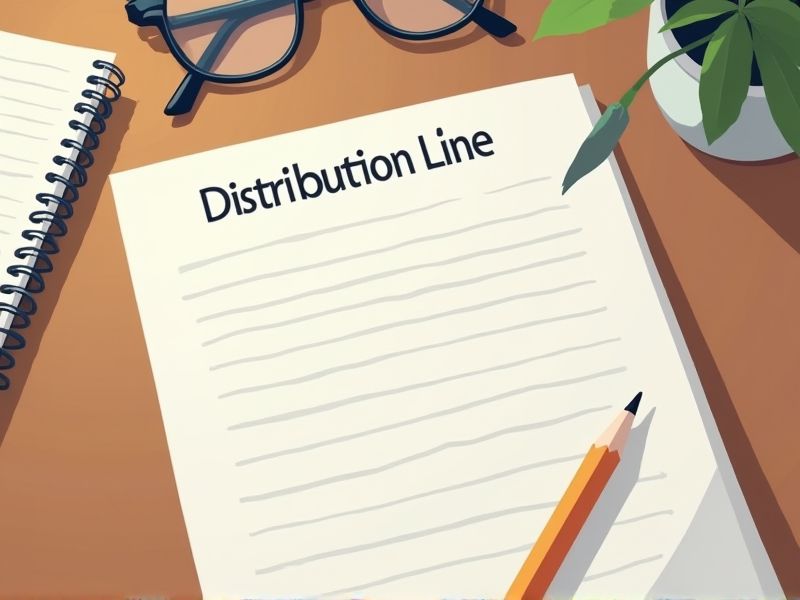
Distribution Line Technicians play a crucial role in ensuring the safe and efficient delivery of electricity to homes and businesses. They often work in high-risk environments, making it necessary for them to possess specialized skills and knowledge to handle complex electrical systems. Certifications provide a standardized measure of a technician's expertise and readiness to manage these responsibilities effectively. Here are some important certifications you may need as a Distribution Line Technician.
OSHA 10-Hour Construction Safety Certification
A Distribution Line Technician often works in environments with potential electrical hazards and high elevations, making safety training crucial. The OSHA 10-Hour Construction Safety Certification offers foundational knowledge on identifying and preventing workplace dangers. Employers recognize this certification as a benchmark for basic safety awareness, which can reduce the risk of workplace accidents. Meeting this safety standard also enhances job prospects, as companies prefer candidates who prioritize safety protocols.
OSHA 30-Hour Construction Safety Certification
The OSHA 30-Hour Construction Safety Certification provides essential training to understand and reduce the risks associated with electrical hazards, which are common in distribution line work. It educates technicians on proper safety practices, enhancing their ability to work safely around high-voltage power lines. Compliance with OSHA standards often leads to fewer workplace injuries, reducing downtime and associated costs for utility companies. Many employers require this certification to demonstrate a commitment to maintaining a safe work environment and ensuring regulatory compliance.
NFPA 70E Electrical Safety in the Workplace Certification
NFPA 70E certification is crucial for distribution line technicians because it emphasizes protective measures to reduce exposure to electrical hazards, which directly impacts workplace safety. Without proper training, technicians face increased risks of electrical shock and arc flash incidents, posing severe injury or fatality risks. By adhering to NFPA 70E guidelines, technicians ensure compliance with occupational safety standards, which significantly decreases liability for employers. Statistically, adherence to these standards results in fewer workplace accidents, thus enhancing overall operational efficiency.
Arc Flash Awareness Certification
Arc Flash Awareness Certification is needed for Distribution Line Technicians because it ensures they understand the dangers associated with high-energy electrical discharges and can implement safety measures effectively. This certification program provides technicians with comprehensive knowledge about protective equipment, minimizing the risk of severe injuries or fatalities on the job. Understanding arc flash hazards also aids in compliance with industry safety standards, reducing the potential for costly regulatory penalties. Technicians equipped with this certification contribute to a safer work environment, enhancing both individual and team safety on-site.
Confined Space Entry Certification
Confined Space Entry Certification is crucial for Distribution Line Technicians because it ensures their ability to recognize and control potential hazards in restricted environments, such as manholes or vaults. Having this certification significantly reduces the risk of accidents or fatalities due to exposure to toxic atmospheres or insufficient oxygen levels. Training in confined space entry promotes adherence to safety protocols and compliance with occupational health regulations. Certified technicians improve the overall safety and efficiency of maintenance and repair operations within such challenging spaces.
CPR/First Aid/AED Certification
CPR/First Aid/AED certification equips distribution line technicians with essential lifesaving skills in case of electrical injuries or emergencies. High-risk environments such as electrical line work increase the likelihood of incidents where immediate medical intervention could save lives. Regulatory standards often require certifications to ensure safety protocols are properly followed within the industry. Possession of these certifications not only enhances personal safety but also improves overall team preparedness and response efficiency.
Live Line Working Certification
Live Line Working Certification is crucial for a Distribution Line Technician because it ensures they have the specialized skills to safely perform maintenance on energized electrical lines, thus preventing outages. This certification minimizes the risk of electrical shocks and accidents, significantly enhancing workplace safety. Properly trained technicians help utilities maintain continuous power supply, thereby increasing customer satisfaction and reliability of the grid. Certification aligns with regulatory compliance and industry standards, which is essential for operational approvals and insurance considerations.
Fall Protection Training Certification
Distribution line technicians face serious fall risks due to the elevated nature of their work. Fall protection training certification equips them with essential safety skills to prevent potentially fatal accidents. Understanding and using proper safety equipment through such training reduces workplace injuries. Employers benefit from reduced liability and adherence to safety regulations.
Electrical Fundamentals Certification
The Electrical Fundamentals Certification ensures a distribution line technician understands core principles like voltage, current, and resistance, crucial for safe operations. Knowledge from the certification reduces the risk of accidents by providing technicians with the skills to handle electrical components properly. It also standardizes the level of technical competence across the industry, enhancing the reliability of electrical systems. Employers often prefer certified technicians as it demonstrates a verified level of expertise, leading to improved trust and efficiency in electrical distribution tasks.
Working Near Overhead Lines Certification
Working near overhead lines exposes distribution line technicians to significant electrical hazards, necessitating the certification to ensure their safety. The certification provides the necessary knowledge and skills to assess and mitigate risks associated with live electrical lines. Employers require certified technicians to comply with regulatory safety standards and reduce liability. Certification enhances a technician's proficiency, leading to fewer accidents and increased operational efficiency.
Summary
When you acquire certifications as a Distribution Line Technician, your skill set significantly expands. Enhanced credibility can lead to better job opportunities and potential salary boosts. In addition to professional growth, certifications may increase your capacity to work safely and efficiently. Overall, these factors can elevate your career trajectory and job satisfaction.
